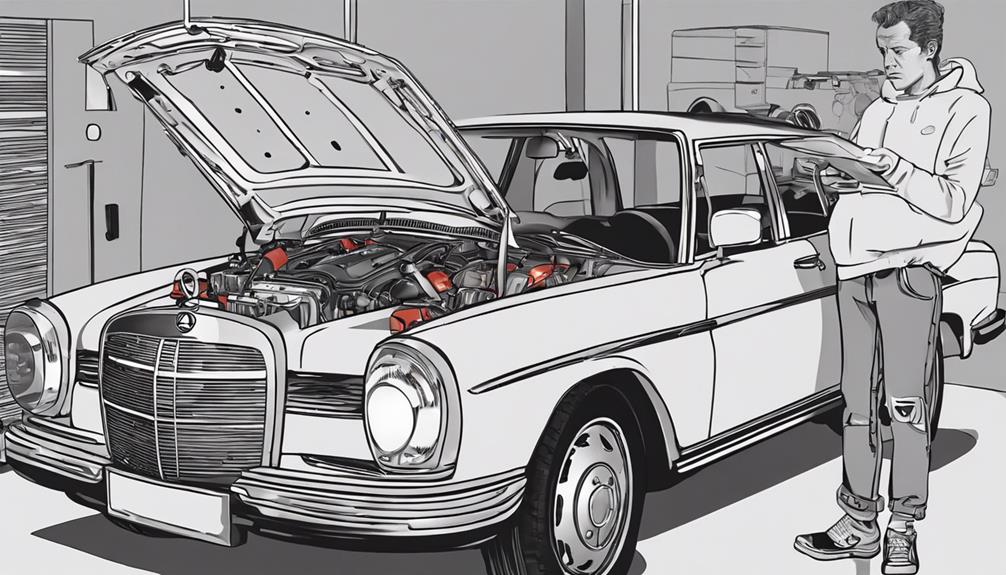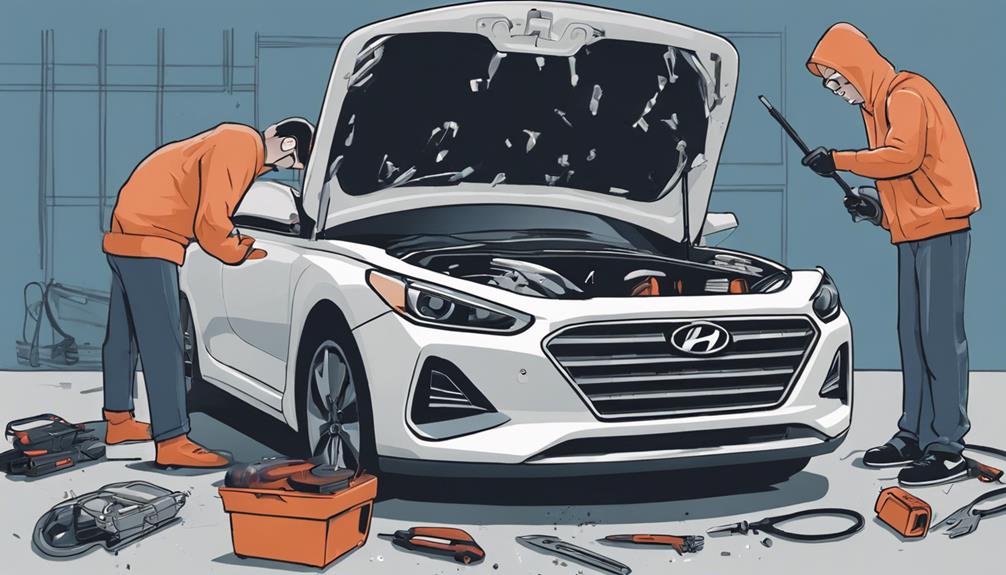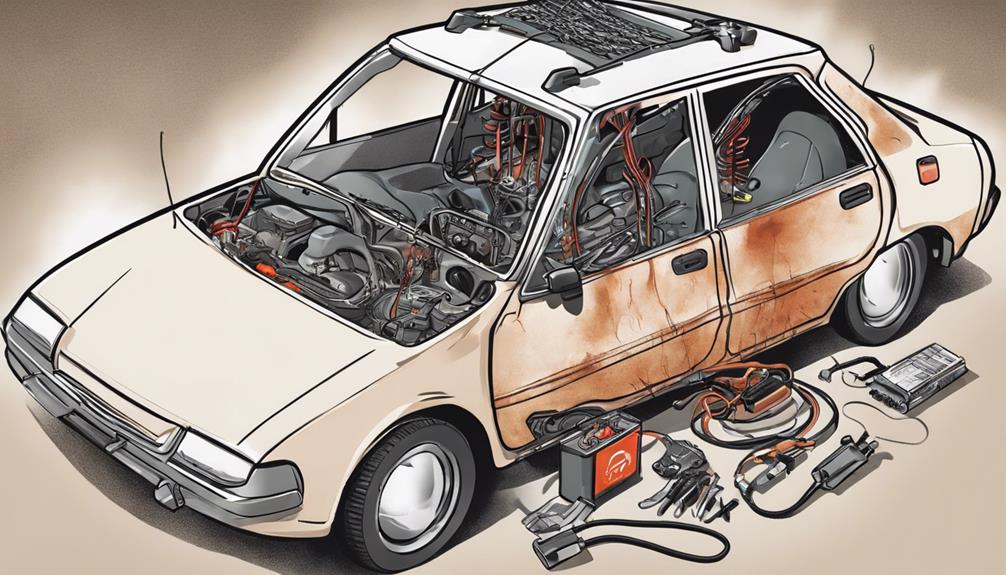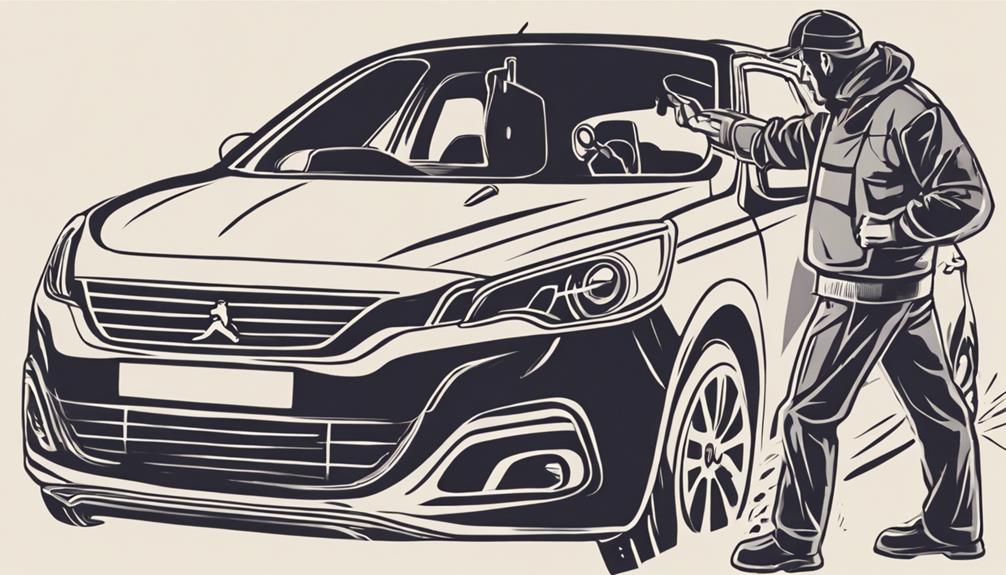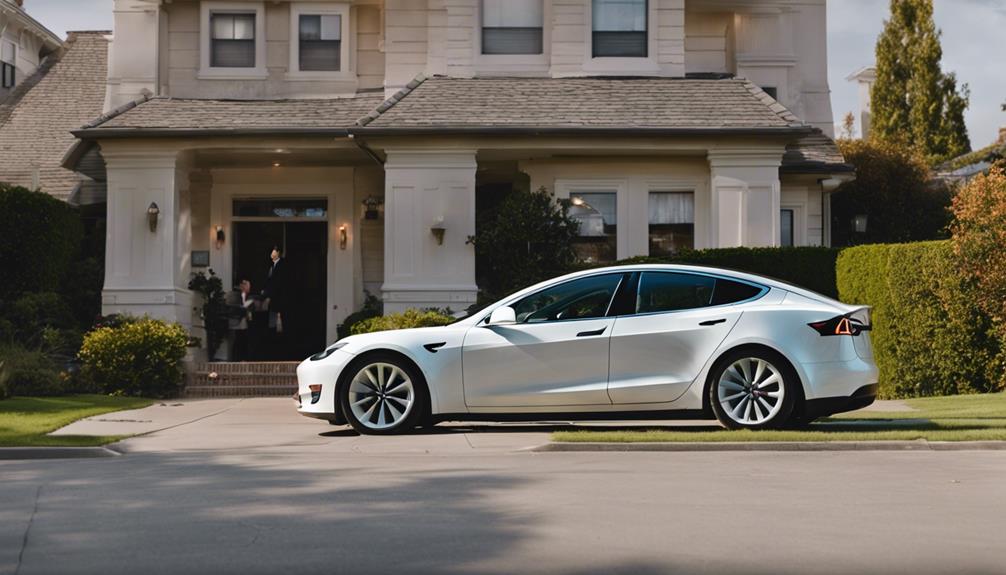If your Mercedes-Benz won't start, it's time to play detective with common culprits like weak batteries, malfunctioning starters, blown fuses, fuel-related issues, and ignition system glitches. Guarantee your battery is stable and opt for high-quality replacements for long-lasting power. Keep an eye out for clicking sounds that might signal a worn-out starter or blown fuses disrupting essential systems. Low fuel levels or contaminated fuel can also be potential hindrances. If you want to get back on the road swiftly, these are just the starting point to troubleshooting your Mercedes-Benz starting issue.
Key Takeaways
- Check battery for weakness or movement, replace if needed.
- Inspect starter for wear or damage, use OEM replacements.
- Verify fuse box for blown fuses, keep spares.
- Ensure proper fuel levels and quality, maintain fuel system.
- Troubleshoot ignition system, key fob, EIS, and other potential causes.
Common Battery Issues
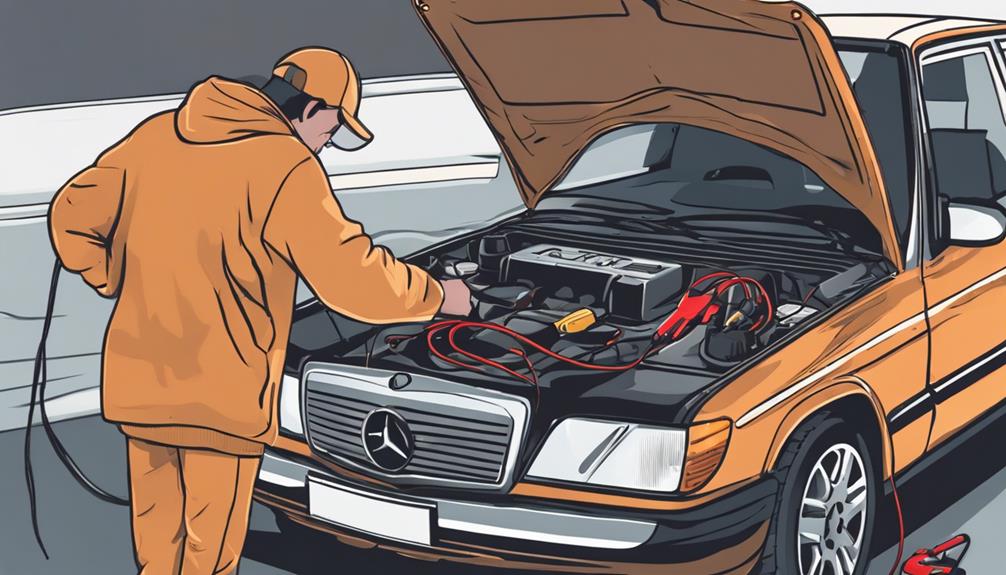
Weak batteries often play a key role behind Mercedes-Benz vehicles refusing to start, causing frustration and inconvenience for owners. When your Mercedes struggles to start, the first component to check is the battery. Mercedes-Benz batteries typically last around 6-7 years before needing replacement. However, factors like the movement of the battery while driving can lead to a loss of charge, even shortening its lifespan.
To safeguard your Mercedes starts smoothly, it's vital to invest in a new, high-quality battery when the time comes. Additionally, using battery hold-down straps can help stabilize the battery and prevent unnecessary movement that could affect its performance. If a new battery still doesn't hold charge effectively, jump-starting may be necessary to kickstart your Mercedes back to life. By staying proactive and attentive to your Mercedes' battery health, you can avoid the inconvenience of a car that won't start when you need it most.
Malfunctioning Starters
When your Mercedes-Benz refuses to start, the culprit might often be a malfunctioning starter, causing frustrating clicking sounds as you turn the key. Starters can wear out naturally over time, leading to this issue.
Additionally, high temperatures can damage the starter solenoid, affecting its performance in initiating the engine. If you suspect a starter problem, it's wise to inspect it for any signs of wear or damage.
Replacing a faulty starter may involve lifting the vehicle, disconnecting the battery, and removing retaining bolts and wires. Opting for an OEM Mercedes-Benz starter replacement guarantees compatibility and quality for your vehicle's starting system, giving you peace of mind.
Blown Fuses
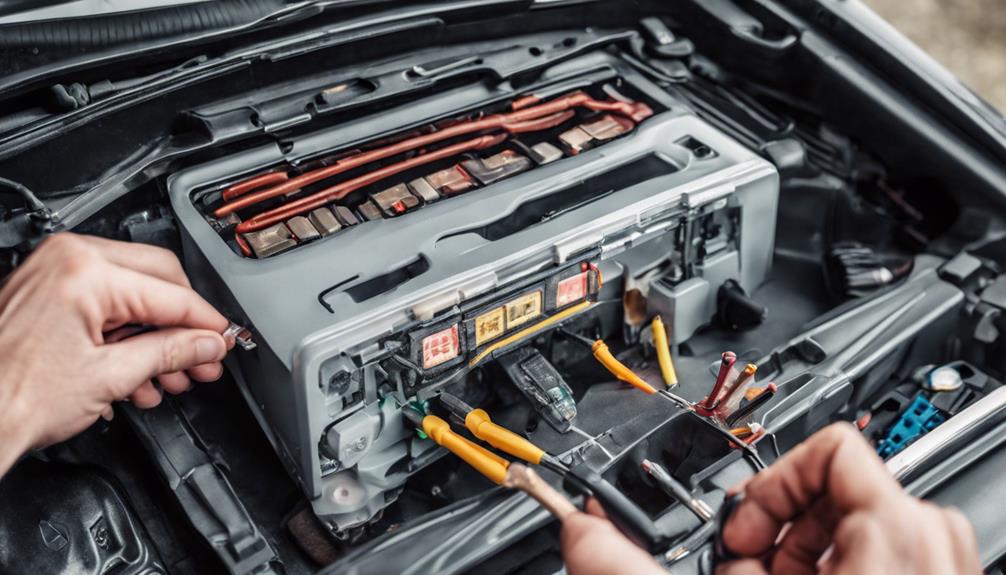
Blown fuses in your Mercedes-Benz can swiftly transform your smooth driving experience into a puzzling ordeal of electrical failure. When a fuse blows, it disrupts essential systems like the ignition, fuel pump, or starter, leaving you stranded. Fuses can blow due to age, electrical surges, or component malfunctions. To tackle this issue, start by checking the fuse box. Identifying and replacing blown fuses promptly is important to get your car back on track.
Replacing blown fuses is a relatively simple task that can save you time and money. By ensuring your fuses are in top condition, you safeguard your Mercedes-Benz against unexpected breakdowns. If you find yourself in need of new fuses, Adsitco offers a range of fuses, fuse boxes, and covers specifically designed for Mercedes-Benz vehicles. Keeping a few spare fuses handy in your glove compartment can be a lifesaver when faced with electrical issues on the road.
Fuel Problems
If your Mercedes-Benz is experiencing starting issues, one common culprit to investigate is potential fuel problems. Low fuel levels can lead to fuel delivery issues, causing your car not to start.
Contaminated fuel or using the wrong fuel type can also prevent the engine from starting properly. It's crucial to make sure you have the correct fuel in your tank to avoid such complications.
Additionally, a faulty fuel gauge can mislead you about fuel levels, resulting in starting problems. Issues like a blown fuse or a failed fuel pump can disrupt the fuel delivery system, impacting the starting process.
Regularly checking and addressing fuel system issues can help prevent Mercedes-Benz starting issues related to fuel problems. Stay vigilant with your fuel system maintenance to keep your Mercedes-Benz running smoothly and avoid being stranded due to fuel-related starting troubles.
Ignition System Troubleshooting
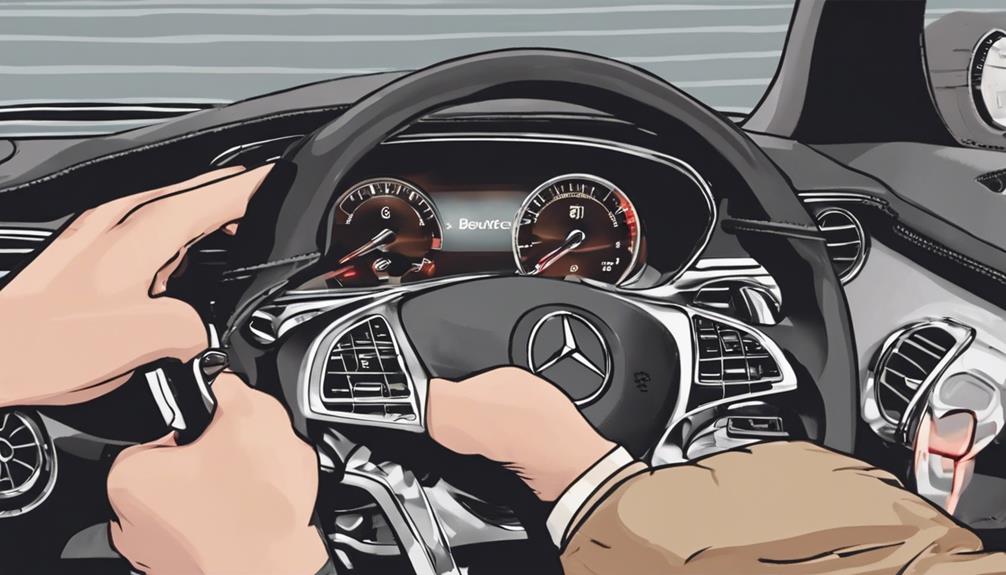
Hey, troubleshooter! Let's get down to the nitty-gritty of ignition system diagnostics.
You'll be inspecting spark plugs, checking battery voltage, and evaluating the starter motor to pinpoint the root of your Mercedes-Benz starting glitch.
These key steps will help you unravel the mystery behind your car's refusal to kick into gear.
Spark Plug Inspection
Examining your spark plugs is an essential step in troubleshooting your ignition system to guarantee peak engine performance and prevent starting issues. Inspect the spark plugs for wear, carbon deposits, or damage, as these can impact ignition efficiency. Use a gapping tool to make sure the spark plug gaps are at the right distance for ideal spark performance. Regularly replacing spark plugs at recommended intervals is important to avoid misfires and starting problems. Fouled or worn spark plugs not only lead to starting issues but can also result in poor fuel economy and diminished engine performance. Observing the color of the spark plug can provide insight into engine conditions, helping diagnose potential issues.
| Spark Plug Examination | |
|---|---|
| Wear | Check for signs of wear or damage. |
| Carbon Build-Up | Inspect for carbon deposits. |
| Gap Adjusting Tool | Use a gapping tool to adjust gap distance. |
Battery Voltage Check
Performing a thorough battery voltage check is essential for diagnosing ignition system issues in your Mercedes-Benz. Low battery voltage can often be the culprit behind starting problems. To check the battery voltage accurately, use a multimeter.
A normal battery voltage for a Mercedes-Benz should read around 12.6 to 12.8 volts when the car is off. If the voltage is considerably lower, it may indicate a faulty battery or a problem with the charging system that's affecting the ignition system.
Starter Motor Evaluation
When assessing the ignition system of your Mercedes-Benz, comprehending the functionality of the starter motor becomes crucial for pinpointing potential starting issues. Here are some key steps to diagnose starter motor problems effectively:
- Verify Power Supply: Confirm the starter motor is receiving adequate power for proper engagement.
- Examine for Visual Signs: Look for any visible damage, corrosion, or loose connections that may impact the starter motor's performance.
- Identify Slow Cranking: If your Mercedes-Benz is experiencing slow cranking, it could indicate a problem with the starter motor.
- Utilize Diagnostic Tools: Employ diagnostic tools to analyze the starter motor's performance and identify any underlying issues efficiently.
Understanding these aspects will help you troubleshoot your Mercedes-Benz's ignition system with confidence.
Starter Motor Problems
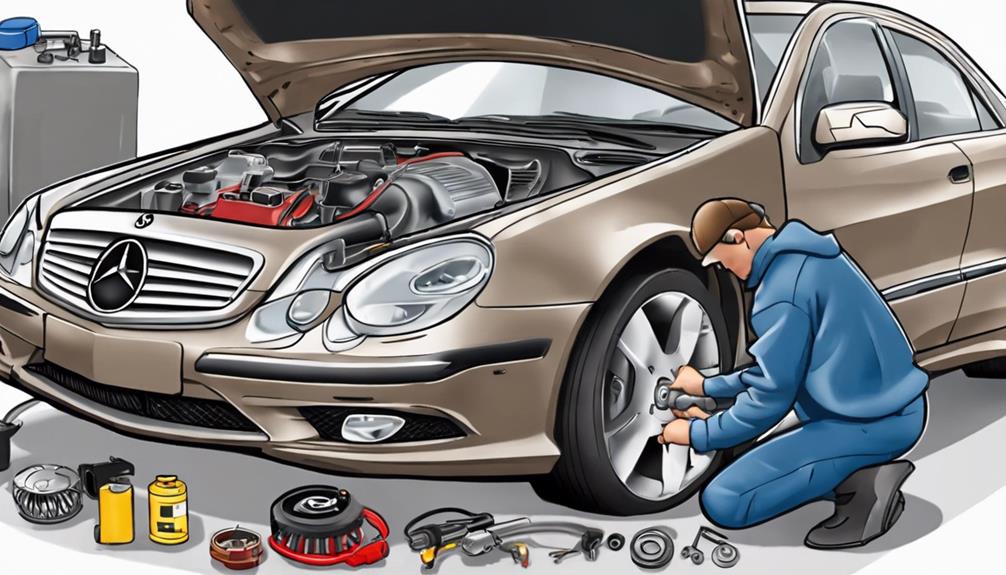
If your Mercedes-Benz is producing a clicking noise when you try to start it, you may be facing starter motor problems. Issues with the starter can lead to symptoms like slow cranking, grinding noises, or a complete failure to start the engine. The starter motor plays an important role in initiating the engine's cranking process, so any faults can hinder your vehicle's ability to start smoothly.
To diagnose starter problems, start by checking the battery to make sure it's in good condition. Next, inspect the connections to the starter motor and the trigger circuit for any loose or damaged components. If everything checks out but the issues persist, it's likely that you have a faulty starter that needs replacing.
When replacing a faulty starter, remember to raise the vehicle safely, disconnect the battery to prevent any electrical mishaps, and install a new OEM Mercedes-Benz starter for peak performance. By addressing starter motor problems promptly, you can get your Mercedes-Benz back on the road smoothly.
Electronic Key Ignition System
Facing starter motor problems in your Mercedes-Benz could be just the beginning of your vehicle troubles, especially when it comes to the Electronic Key Ignition System. This system, with its keyless entry and push-button start features, adds a touch of modern convenience to your driving experience. However, issues with the key fob or the EIS can quickly turn this convenience into frustration if your car refuses to start.
Here are some key points to ponder regarding the Electronic Key Ignition System:
- Key Fob Troubles: If your key fob is malfunctioning, it may fail to communicate properly with the EIS, leading to starting problems.
- EIS Malfunctions: A faulty Electronic Ignition Switch can prevent the engine from starting even if everything else seems fine.
- Resetting the EIS: Sometimes, resetting the EIS by disconnecting the car battery for a few minutes can help resolve starting issues.
- Spare Key Solutions: Using a spare key can help determine if the problem lies with the key or the EIS itself.
Other Potential Causes
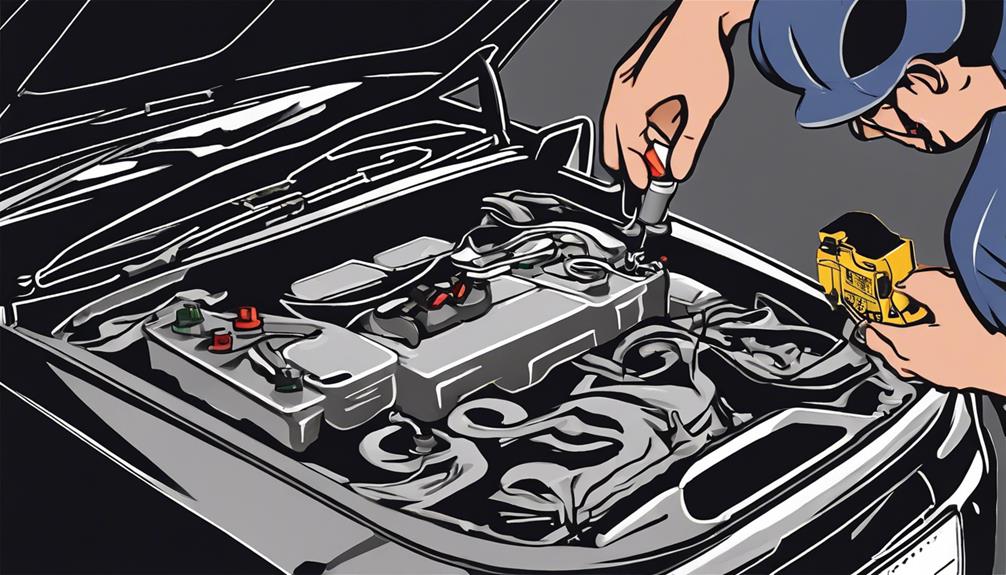
Considering the multitude of components that contribute to a Mercedes-Benz not starting, exploring other potential causes beyond the Electronic Key Ignition System is essential for thorough troubleshooting. Issues with the ignition switch can sometimes be the culprit, causing a disruption in the starting process.
A faulty fuel pump or problems within the fuel delivery system, like a clogged fuel filter, can also lead to starting issues in your Mercedes. Additionally, faulty sensors such as the crankshaft position sensor or throttle position sensor can play a significant role in preventing your car from starting smoothly.
Advanced security systems, while designed to protect your vehicle, may occasionally malfunction or experience communication errors, resulting in starting difficulties. Checking for blown fuses related to the starter or ignition system is vital as well, as these small components can have a big impact on your Mercedes-Benz's ability to start.
Frequently Asked Questions
What Would Cause Mercedes-Benz to Not Turn On?
If your Mercedes-Benz won't start, common culprits like a dead battery, faulty starter, clogged fuel filter, or ignition switch issues could be to blame. Regular maintenance and using OEM parts are key for prevention.
What Would Cause My Car to Suddenly Not Start?
If your car suddenly won't start, common causes might be a dead battery, faulty starter, clogged fuel filter, or a malfunctioning ignition switch. Look out for symptoms like clicking noises, engine hesitation, or key issues.
How Do You Fix a Car That Cannot Start?
To fix a car that cannot start, you need to first assess the battery, starter, fuel filter, and ignition switch for potential issues. Seek professional assistance for accurate diagnosis and consider using OEM parts for effective solutions to starting problems.
Why Is My Mercedes Completely Dead?
When your Mercedes is completely dead, it's often due to a drained or faulty battery, corroded terminals, starter issues, or faulty ignition components. Check the battery, connections, and starting system to diagnose and fix the problem.





